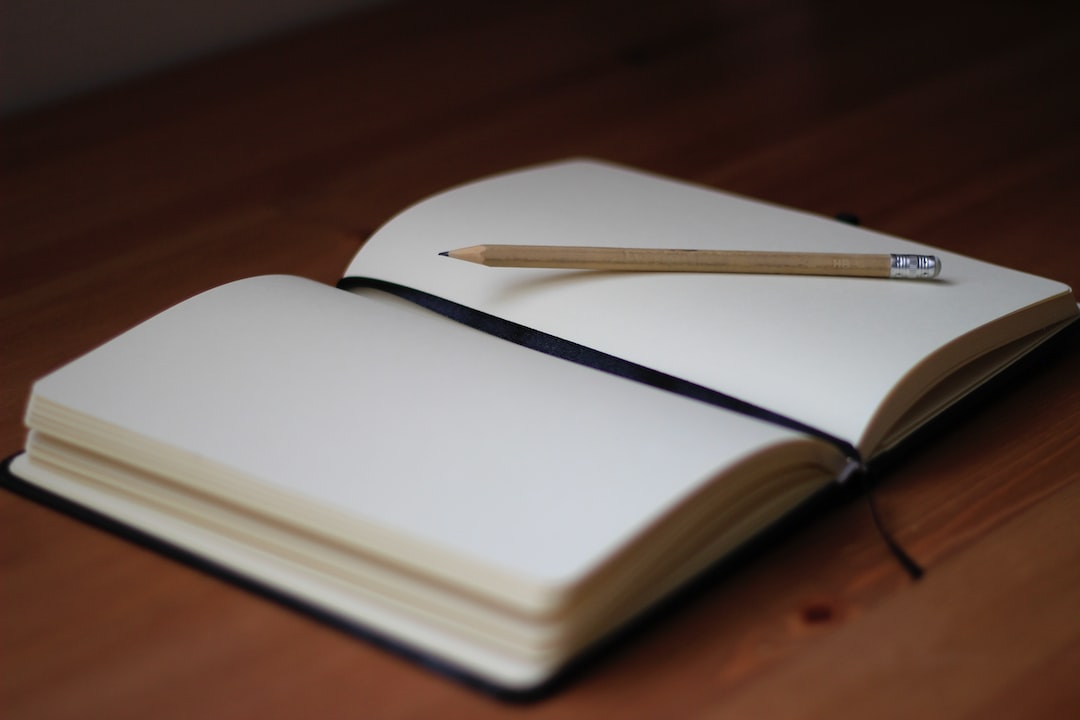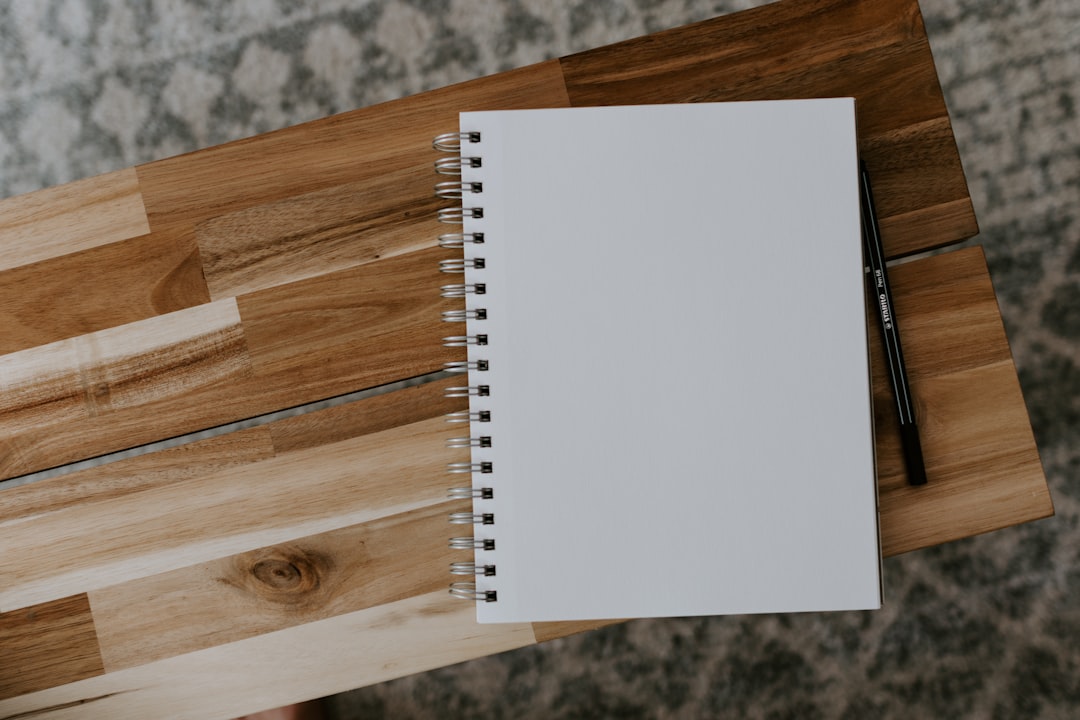Productivity is a crucial part of our daily lives. Whether it’s at work, school, or home, being productive can help us achieve our goals and lead a more fulfilling life. However, with so many distractions and responsibilities, it can be challenging to maintain consistent levels of productivity. One way to overcome this challenge is by incorporating daily reflection into our routines. Daily reflection is the act of taking time to reflect on our thoughts, actions, and goals. By doing so, we can gain clarity, focus, and motivation, which can ultimately lead to improved productivity. In this blog post, we will explore the benefits of daily reflection, how to incorporate it into your routine, the different forms of daily reflection, the role of goal-setting in daily reflection, and strategies for overcoming obstacles to daily reflection. Let’s get started!
The Benefits of Daily Reflection:
Daily reflection is a powerful tool that can enhance your productivity in various ways. When you take the time to reflect on your day, you can gain valuable insights into your habits, routines, and mindset. Here are some of the benefits of daily reflection:
Increased Focus:
By reflecting on your daily activities, you can identify distractions and eliminate them from your routine. You can also identify the tasks that require the most focus and prioritize them accordingly.
Motivation:
Daily reflection can help you stay motivated by reminding you of your goals and progress. When you reflect on your achievements, you can feel a sense of accomplishment, which can motivate you to continue working towards your goals.
Improved Decision-Making:
When you reflect on your daily decisions, you can identify patterns and make adjustments accordingly. This can help you make better decisions in the future and avoid making the same mistakes.
Reduced Stress:
Daily reflection can help you manage stress by providing a space for you to process your emotions and thoughts. By reflecting on your day, you can identify the sources of stress and take steps to reduce them.
Increased Self-Awareness:
Daily reflection can help you become more self-aware by providing a space for you to reflect on your thoughts and feelings. This can help you identify your strengths and weaknesses and make adjustments accordingly.
Improved Creativity:
By reflecting on your daily experiences, you can generate new ideas and insights. This can help you become more creative and innovative in your work.
Incorporating daily reflection into your routine can be a game-changer for your productivity. In the next section, we’ll discuss some tips on how to make daily reflection a habit.
This can help you identify your strengths and weaknesses and make adjustments accordingly.
How to Incorporate Daily Reflection into Your Routine:
Incorporating daily reflection into your routine may seem daunting at first, but with some simple tips and suggestions, it can become a habit that positively impacts your productivity. Here are some strategies to help you make daily reflection a part of your daily routine:
1. Start Small:
Like any new habit, it’s important to start small and gradually increase the time you spend on daily reflection. Begin by setting aside just a few minutes each day to reflect on your goals, accomplishments, and areas for improvement. As you become more comfortable with the practice, you can gradually increase the amount of time you dedicate to reflection.
2. Find the Best Time and Place:
Finding the best time and place for reflection is crucial to making it a habit. Choose a time of day when you are least likely to be interrupted or distracted, and find a quiet and comfortable space where you can focus on your thoughts. Some people prefer to reflect in the morning, while others find it helpful to reflect at the end of the day to unwind and prepare for the next day.
3. Use a Reflection Tool:
Using a reflection tool can help you stay organized and focused during your daily reflection. Consider using a journal, a meditation app, or a goal-setting app to help you structure your reflection time and track your progress over time. Having a tool to guide your reflection can be especially helpful if you’re new to the practice.
4. Make Reflection a Priority:
To make daily reflection a habit, it’s important to prioritize it in your daily routine. Consider scheduling a specific time each day for reflection, and make it non-negotiable. Treating reflection as a priority will help ensure that you make time for it even on busy or stressful days.
5. Set Realistic Goals:
Setting realistic goals for your daily reflection practice can help you stay motivated and focused. Start by setting small, achievable goals, such as reflecting for 5 minutes each day or reflecting on one specific area of your life each week. As you become more comfortable with the practice, you can set more challenging goals to help you achieve your long-term objectives.
6. Track Your Progress:
Tracking your progress is an important part of any habit-forming process. Consider keeping a record of your daily reflections, either in a journal or on an app, to help you track your progress over time. Seeing how far you’ve come can be a powerful motivator to keep you consistent with your reflection practice.
Incorporating daily reflection into your routine takes time and dedication, but the benefits for your productivity and overall well-being are well worth the effort. Use these tips and suggestions to help you make reflection a habit and start reaping the benefits today!
As you become more comfortable with the practice, you can gradually increase the amount of time you dedicate to reflection.
The Different Forms of Daily Reflection
When it comes to daily reflection, there are several different forms and techniques that you can use to enhance your productivity. Here are a few examples:
Journaling
Journaling is a popular form of daily reflection that involves writing down your thoughts, feelings, and experiences. By taking the time to reflect on your day and record your thoughts, you can gain a better understanding of yourself and your priorities. Journaling can also help you identify patterns in your behavior and set goals for the future.
Meditation
Meditation is another powerful form of daily reflection that can help you increase your focus and reduce stress. By taking a few minutes each day to sit quietly and focus on your breathing, you can clear your mind and gain a fresh perspective on your goals and priorities. Meditation can also help you develop greater self-awareness and improve your ability to manage your emotions.
Self-Assessment
Self-assessment involves taking an honest look at your strengths, weaknesses, and areas for improvement. By reflecting on your performance and setting goals for the future, you can identify areas where you need to improve and develop strategies to overcome obstacles. Self-assessment can also help you build confidence and develop a greater sense of self-awareness.
No matter which form of daily reflection you choose, the key is to make it a consistent part of your routine. By setting aside time each day to reflect on your goals and priorities, you can gain greater clarity and focus, and ultimately become more productive and successful.
By reflecting on your performance and setting goals for the future, you can identify areas where you need to improve and develop strategies to overcome obstacles.
The Role of Goal-Setting in Daily Reflection
Goal-setting is a critical component of daily reflection. Without clear goals, it can be challenging to determine whether you are making progress or achieving the results you desire. When you reflect on your day, you should evaluate how much progress you made towards your goals and consider whether your actions aligned with your priorities.
Effective goal-setting involves setting specific, measurable, attainable, relevant, and time-bound objectives. This SMART method helps to ensure that your goals are realistic and achievable, which can increase your motivation and sense of accomplishment.
When incorporating goal-setting into your daily reflection routine, consider breaking down larger goals into smaller, more manageable ones. This approach can help you prioritize your actions and focus on making progress towards your goals.
Tracking your progress towards your goals is also essential. Consider using a journal or planner to record your progress and reflect on your successes and challenges. By tracking your progress, you can identify patterns in your behavior and adjust your approach as needed to achieve your goals.
It’s important to remember that goal-setting is not a one-time event. Goals should be reviewed regularly, and progress should be tracked consistently. By doing so, you can stay motivated and focused on achieving your desired outcomes.
Incorporating goal-setting into your daily reflection routine can help you stay motivated, focused, and productive. By setting clear, achievable goals and tracking your progress, you can make meaningful progress towards your objectives and achieve the results you desire. So take some time to reflect on your goals and priorities, and set yourself up for success!
By doing so, you can stay motivated and focused on achieving your desired outcomes.
Overcoming Obstacles to Daily Reflection
As with any habit, incorporating daily reflection into your routine can be met with obstacles. The key is to identify these obstacles and develop strategies to overcome them. Below are some common obstacles to daily reflection, along with strategies for staying consistent with your reflection practice.
One common obstacle is lack of time. Many of us lead busy lives, with work, family, and other commitments taking up much of our day. However, it’s important to remember that taking even a few minutes each day for reflection can have a significant impact on your productivity. One strategy for overcoming this obstacle is to schedule your reflection time into your day, just as you would schedule a meeting or appointment. This can help ensure that you prioritize your reflection practice and make it a non-negotiable part of your day.
Another obstacle is lack of motivation. It can be easy to let other distractions get in the way of your reflection practice, especially if you’re feeling tired or overwhelmed. In these moments, it can be helpful to remind yourself of the benefits of daily reflection, such as increased focus and motivation. You might also try setting a specific goal for your reflection practice, such as reflecting on one positive experience from your day or identifying one area for improvement.
Finally, it’s important to find a reflection practice that works for you. There are many different forms of daily reflection, from journaling to meditation to self-assessment. If one form of reflection isn’t resonating with you, don’t be afraid to try something else. It’s also helpful to find a time and place for reflection that feels comfortable and conducive to your practice. Some people prefer to reflect in the morning, while others find it more helpful to reflect before bed. Experiment with different times and locations until you find what works best for you.
Incorporating daily reflection into your routine can be a challenge, but with the right strategies and mindset, it’s possible to overcome obstacles and make reflection a consistent part of your day. Remember to stay focused on the benefits of daily reflection and find a practice that feels meaningful and relevant to your goals. With time and dedication, you’ll start to see the positive impact of daily reflection on your productivity and overall well-being.
You might also try setting a specific goal for your reflection practice, such as reflecting on one positive experience from your day or identifying one area for improvement.
Conclusion:
In conclusion, daily reflection is a powerful tool that can enhance your productivity and help you achieve your goals. By taking the time to reflect on your thoughts, emotions, and actions, you can gain valuable insights into your strengths and weaknesses, identify areas for improvement, and make more informed decisions.
Some of the benefits of daily reflection include increased focus, motivation, and clarity, as well as improved self-awareness and emotional intelligence. Additionally, goal-setting is a key component of daily reflection, allowing you to set clear objectives and track your progress over time.
While daily reflection may seem daunting at first, there are many strategies you can use to make it a habit. For example, you can schedule a specific time and place for reflection each day, or use prompts like journaling or guided meditation to guide your reflections.
Of course, obstacles to daily reflection are common, such as lack of time or motivation. However, by staying committed to your goals and using strategies to overcome these obstacles, you can stay consistent with your reflection practice and reap the benefits in the long term.
So, if you want to enhance your productivity and achieve your goals, I encourage you to incorporate daily reflection into your routine. Whether you choose to journal, meditate, or simply take a few moments to reflect on your day, the benefits of this practice are clear. So why not give it a try and see how it can transform your life?





